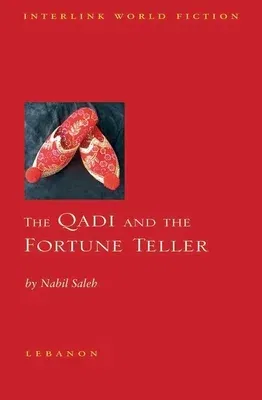Nabil Saleh
(Author)The Qadi and the Fortune TellerPaperback, 6 May 2008

Qty
1
Turbo
Ships in 2 - 3 days
In Stock
Free Delivery
Cash on Delivery
15 Days
Free Returns
Secure Checkout

Part of Series
Interlink World Fiction
Print Length
160 pages
Language
English
Publisher
Interlink Books
Date Published
6 May 2008
ISBN-10
1566567149
ISBN-13
9781566567145
Description
Product Details
Author:
Book Format:
Paperback
Country of Origin:
US
Date Published:
6 May 2008
Dimensions:
20.32 x
13.89 x
1.19 cm
Genre:
Middle Eastern
ISBN-10:
1566567149
ISBN-13:
9781566567145
Language:
English
Location:
Northampton, MA
Pages:
160
Publisher:
Series:
Weight:
199.58 gm